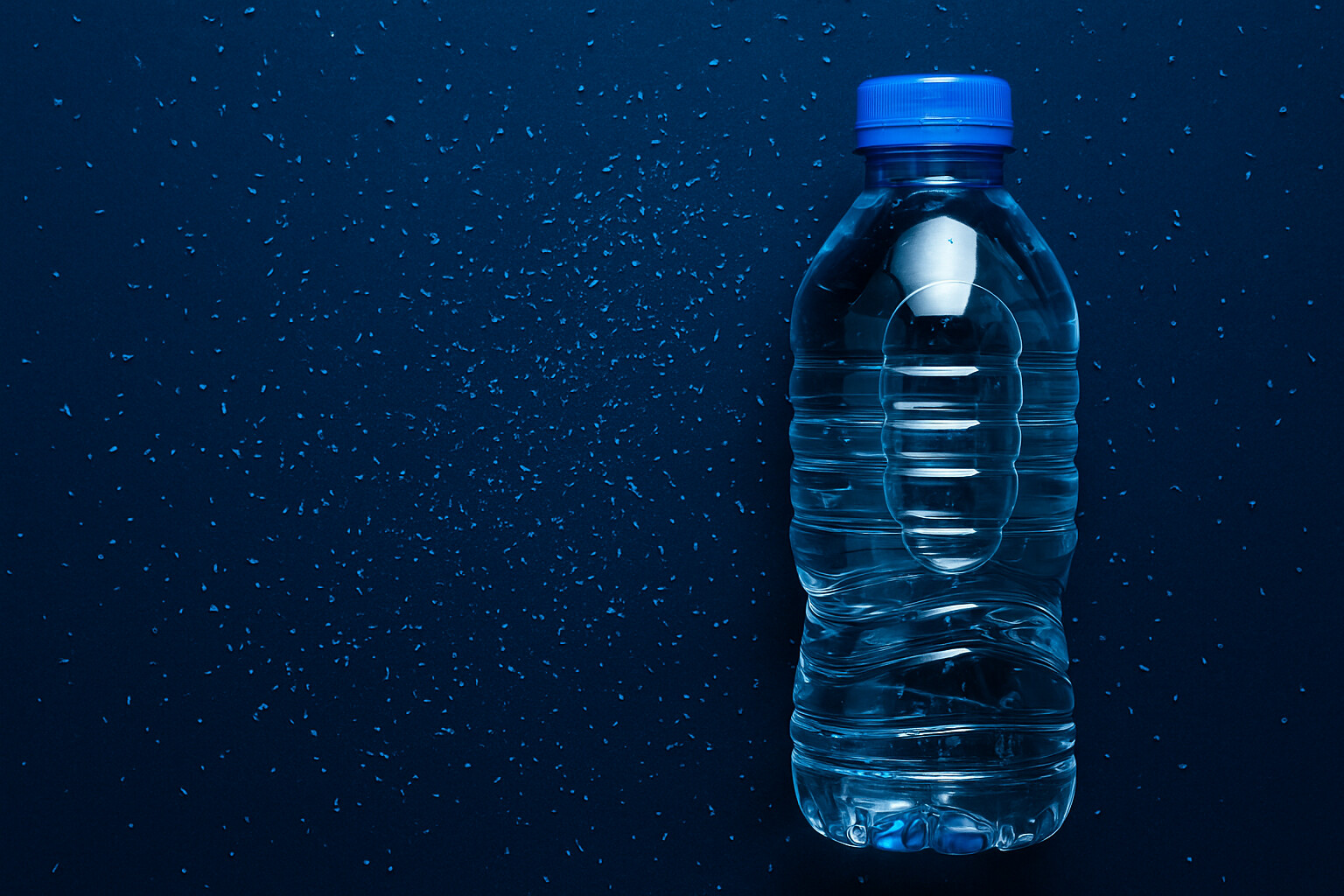Invisible Pollution in Bottled Water
Keywords: bottled water, microplastics, nanoplastics, health risks, environmental protection, water safety
As the issue of plastic pollution continues to escalate, recent studies reveal that the bottled water we consume daily may not be as pure as we imagine. A study published in January 2024 in the Proceedings of the National Academy of Sciences (PNAS) used dual-laser microscopy to examine commercial bottled water and found an average of 240,000 microplastic and nanoplastic particles per liter, with some samples containing as many as 370,000. About 90% of these were nanoplastics, which are smaller in size and can more easily penetrate human tissues and cells.
The study indicated that these particles primarily originate from wear and tear on the bottle and cap, or from friction during water processing and bottling, and possibly even from filtration equipment. This suggests that each time we open a bottle or take a drink, we may unknowingly ingest a significant number of plastic fragments.
Evidence of Microplastics Entering the Human Body
It’s not just bottled water—scientists have detected microplastics in various human samples. A 2022 study published in Environment International reported that microplastics were found in the blood of 80% of participants. In 2021, research published in Toxics identified microplastics in human placental samples, suggesting that fetuses may be exposed to unknown risks. These findings have raised significant concern in the medical community regarding the human circulatory system and developmental health.
Health Effects Still Unclear
Although microplastics and nanoplastics have been confirmed to enter the human body, their long-term health effects remain inconclusive. Preliminary studies suggest that these particles may trigger inflammatory responses, disrupt the endocrine system, or even cause cellular damage. Nanoplastics, in particular, pose a greater concern due to their extremely small size, making it easier for them to penetrate cells. However, scientists emphasize that these are still early findings, and large-scale, long-term epidemiological studies are needed to confirm their impact.
How to Reduce Exposure Risks?
Experts recommend the following actions to minimize microplastic intake:
Choose glass or metal containers to reduce plastic use.
Avoid disposable plastic products, such as plastic utensils and takeout cups.
Drink filtered tap water instead of bottled water.
At the same time, the scientific community is continuing to study the toxicity of various plastic particles and working toward establishing stricter drinking water safety standards.
The presence of microplastics reminds us that even bottled water, which appears clean, may conceal significant pollution risks. Although there is currently no conclusive evidence that microplastics directly cause disease, these findings are enough to raise concern. By reducing plastic use and choosing safer drinking options, we can make better choices for both our health and the environment in our daily lives.
References:
1.Scientists find about a quarter million invisible microplastic particles in a liter of bottled water
https://www.pbs.org/newshour/science/scientists-find-about-a-quarter-million-invisible-microplastic-particles-in-a-liter-of-bottled-water?utm_source=chatgpt.com
2.Bottled water contains up to 100 times more plastic than previously estimated, new study says
https://www.cbsnews.com/news/bottled-water-nanoplastics-up-to-100-times-more-plastic-pnas/?utm_source=chatgpt.com
3.Microplastics found in human blood for first time
https://www.theguardian.com/environment/2022/mar/24/microplastics-found-in-human-blood-for-first-time?utm_source=chatgpt.com
4.Microplastics found in every human placenta tested in study
https://www.theguardian.com/environment/2024/feb/27/microplastics-found-every-human-placenta-tested-study-health-impact?utm_source=chatgpt.com
5.How to Reduce Your Exposure to Microplastics
https://www.bluecrossvt.org/health-community/blog/listing/how-reduce-your-exposure-microplastics?utm_source=chatgpt.com



